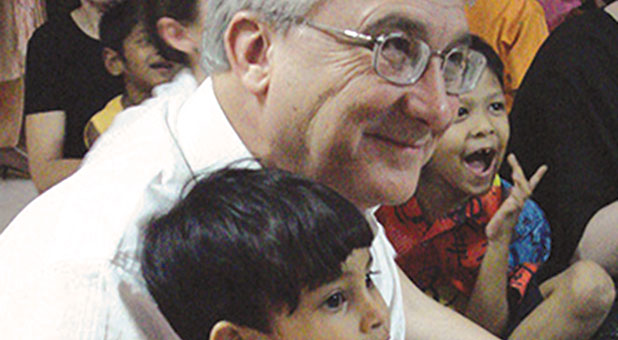Though many think slavery is a thing of the past, more than 29.8 million people are held captive as slaves today, according to a comprehensive report from Australia-based Walk Free Foundation. The majority of victims are located outside the U.S., with nearly half—14 million—in India.
That’s why Project Rescue focuses on rescuing and restoring sex-trade victims in India. Since its founding in 1997, in the red light district of Mumbai, the ministry has helped more than 24,000 women and children affected by sexual slavery and now serves in 15 locations throughout India, Nepal, Moldova, Bangladesh, Tajikistan and Spain.
Lucy, the director of a girls’ home in North India who did not share her last name for security reasons, explains that mothers who work in brothels often give their children to Project Rescue to temporarily provide custody of the children and bring them to a safe house. There, the children are cared for around the clock and attend Christian schools.
“Every time we take a child out of the brothels, it is physically and spiritually bringing them out of darkness into light,” Lucy says. “It’s been amazing to see the transformational power of Jesus—to see a child who was abused, scared and angry, and watch them over the course of months blossom.”
Project Rescue co-founder David Grant agrees, saying the most rewarding parts of the ministry have to do with the impact it has on children’s lives: “There are two rewards. [The first is] to look into the eyes of a 7-year-old who for her entire life slept under her mother’s bed in a brothel—who now has her own bed in a safe shelter—and see the fear and uncertainty replaced by confidence and peace. The second is to see scores of the girls who have lived in our aftercare homes now leaving for Bible college to prepare for ministry.”
Lucy says six women who graduated from Project Rescue are now studying to return to the organization as counselors.
“Our long-term goal,” she says, “is to help them go to college or vocational training and be a support for them until they’re able to be on their own.














































